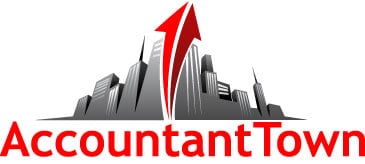What is a Certified Management Accountant (CMA)?
The primary step to take toward becoming a certified management accountant is earning a four-year degree. You may study online, through a college or university, or get a bachelor’s degree from an accredited service school. Some states require a bachelor’s degree for CMA application but require even more education for CPA test requirements. After your four-year degree is earned, you can request the first action towards being a Certified Management Accountant. You need to pass this test prior to you being considered for work.
There are lots of professional companies that offer accreditation programs. These companies are:
- Expert Associations of Licensed Management Accounting Professionals (PMA)
- The Association to Advance Collegiate Schools of Service (AACSB)
- American Institute of Certified Public Accountants (AICPA)
- The Chartered Qualified Financial Accountant (CCFA)
They offer these programs both nationally and in your area. The majority of professionals get their accreditation from among these organizations.
Certified Management Accountant Requirements:
Certified Management Accountant (CMA) classification requires CMA candidates to attain a specific number of credit hours in addition to passing a certified examination before they can gain certification.
A CMA needs to know about business and accounting basics, as well as:
- Budgeting
- Monetary Declaration Analysis
- Managerial Interaction Abilities
- Managerial Management Abilities
- Self-managing
- Issue Resolving Skills
- Accounting Abilities
- Relationship Structure
The initial step towards becoming a certified management accountant includes:
- Part 1:
This test examines candidates knowledge of accounting concepts, fundamental finance ideas, basic journal practices, cost-accounting concerns, and other topics needed for audit preparation. Candidates are given 24 hours to complete the fundamentals examination. - Part 2:
Following successful completion of the fundamentals exam, candidates take the advanced exam. They have three months after passing the principles examination to complete the next section. A prospect needs to pass all parts of the test to gain the status of certified management accountant.
After passing both assessments, prospects get a certificate from the institute. The two tests can be taken in any order.
Why Become a Certified Management Accountant?
The CMA typically earns a greater annual wages, and enjoys other advantages, such as:
- Credibility:
Like other certifications in accounting, the CMA qualification shows proficiency. It is also acknowledged in a number of countries, including the U.S., making it an internationally applicable credential. - Earning Prospective:
Companies frequently choose CMA holders for higher-paying positions. In 2019, the IMA performed a worldwide wage survey that discovered that CMAs make 117% compared to the incomes of non-certified specialists. - More Job Opportunities:
CMA accreditation makes task candidates more flexible, and therefore more enticing to companies. Specialists who make CMAs likewise end up being members of the IMA, which means more chances to network and hear about job opportunities. - Career Advancement:
Companies often choose candidates with management and administrative abilities for upper-level positions. The CMA accreditation examination requires strategic thinking in choice making, which is vital for people in management positions. - Job Security:
With the rise of automated systems surpassing specific kinds of human labor, professionals need to differentiate themselves with other abilities. This accreditation emphasizes critical thinking, which permits CMA holders to think tactically instead of just crunching numbers. A good CMA might even innovate ways to incorporate technological advances.
Accounting made easy, for FREE!

Access the contact form and send us your feedback, questions, etc. We are always welcome to help someone out. You can also contact us if you wish to submit your writing, cartoons, jokes, etc. and we will consider posting them to share with the world! The Facebook and LinkedIn groups are also good areas to find people interested in accounting like yourself, don’t hesitate to join as everyone of all levels are welcome to become part of the community.
